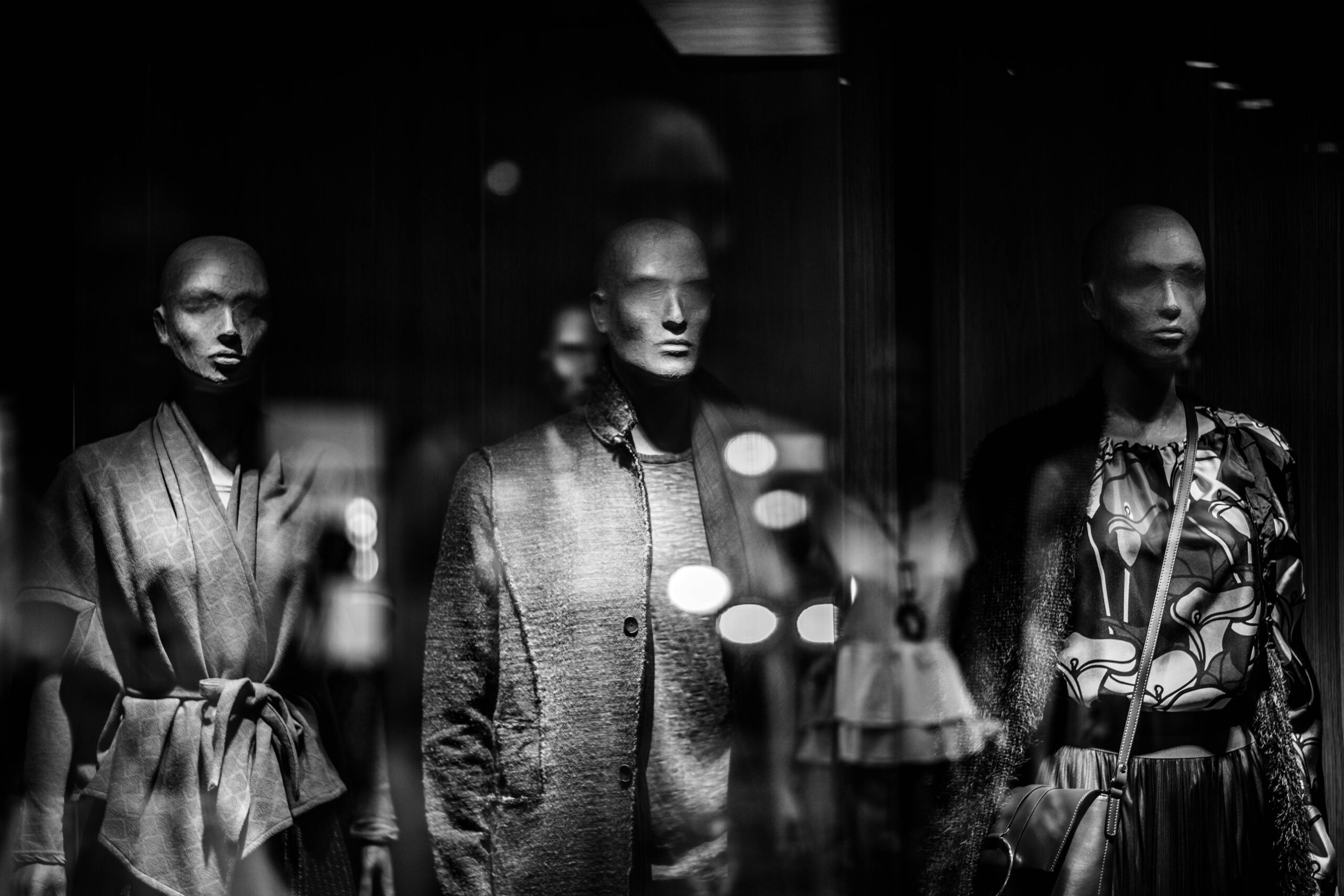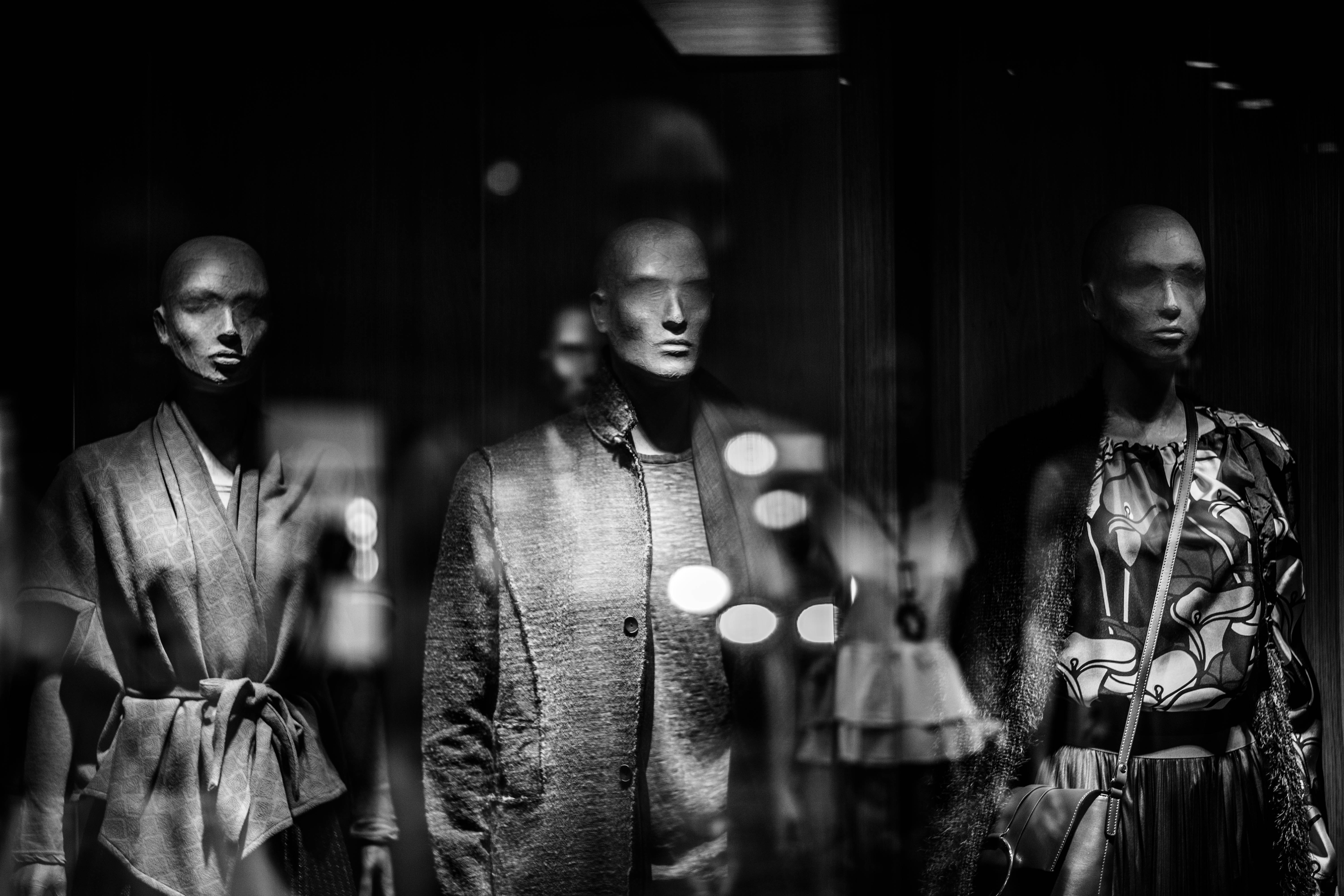
The Horrors Behind Fast Fashion
By:
Jennah Owda
What could be so horrific about buying inexpensive clothes that are trendy? As a college student that has to balance out bills but also wants to look fashionable during the semester, fast fashion became my best friend. I spent hours searching for clothes and adding them to my cart. As a consumer, I was amazed at how quickly these online stores were jumping onto trends. Without a second thought, I would press the checkout button and wait for my mass amount of clothes to arrive. Now, while there is nothing wrong with loving a great deal on clothes, I was not taking the time to ask myself, “How are these online stores keeping up with trends?” and “How are these mass amounts of clothes made so quickly?” After hundreds of dollars spent on fast fashion, I finally did my research and found the answers to the questions that should have been asked earlier.

How are online stores keeping up with trends so quickly?
With social media platforms like TikTok and Instagram, online stores can see what is trending within seconds, making fast fashion even faster. Unfortunately, this process is not always innocent. Many of these fast fashion companies have been caught stealing designs from independent designers and mass-producing the hard work of these designers.
“I’m SO over these major brands stealing from black designers,” says designer
Mariama Diallo in a recent tweet
. “They couldn’t even change ONE thing and it’s now one of their highest selling items.”
Diallo’s luxury brand
Sincerely Ria
is focused on empowering women of color through inclusivity and by challenging the “
outdated idea that beauty
is pain.” The dress took Diallo a year to design and was released on her website in November of 2020. By June of 2021, her dress was exploited on Shein and WeWoreWhat. When Diallo found her designs were recreated and sold for less, she was left devastated and heartbroken. A year of hard work and time put into creating a dress that women of all sizes and colors could feel empowered in was stolen and profited off of by the fast fashion industry within seconds.
“So heartbroken right now. I pour my heart into
@sincerelyria.xo
just for huge corporations to steal and make millions.” says Diallo “How can I even compete?”
Diallo is not the first nor last person of color to have their designs stolen by million-dollar fast fashion companies. A month after the large brands were exposed by Diallo, Nigerian-based brand Elexiay accused Shein of replicating their hand-crocheted Amelia sweater design.
“Tonight I feel crushed,
@SHEIN_official
has stolen my Amelia sweater design,” tweets
Elexiay
designer. “Spent hours designing and brainstorming this design and it takes days to crochet each sweater. It’s quite disheartening to see my hard work reduced to a
machine-made
copy.”
Elexiay is a brand that highlights the beauty of sustainable and ethical slow fashion with its unique crochet sweaters. After recognizing the passion that these rising brands have to create an original piece while also keeping the planet green, I couldn’t help but be ashamed of myself for supporting fast fashion brands. Although yes, it is more affordable, I realized that by supporting fast fashion brands, I am crushing the dreams and belittling the hard work of these women of color. Being a woman of color myself, I felt guilty for supporting an industry that did not want to see these women rise.
How are these mass amounts of clothes made so quickly?
The first answer that came to my mind when I asked myself this question was machines, and unfortunately, I was very wrong. The reason why we are able to get our clothes made so quickly is not because of advanced technology. It is because there are 1.8 million innocent Uyghurs in concentration camps.
Xinjiang, China, is known for being the main cotton source of fashion brands due to them producing 84% of the world’s cotton, but it is also known for its concentration camps that are filled with over 1.8 million Muslim Uyghurs who are beaten, raped, and starved. Chinese Uyghurs are currently being ethnically
cleansed due to their religious beliefs,
meaning any acts that may suspect a person of practicing Islam will lead to life in a concentration camp. In these camps, women are forced into having abortions and forced to marry Han Chinese men to
weaken the Uyghur presence and identity
. Turkic Uyghur children are
“having their nails pulled, being put in a tiger chair, or by being sterilized”
because they are simply Muslim. These children and mothers are also the same people who are forced to make our cheap clothes so that we can stay “trendy.”
Brands like Zara, Gap, and Nike are supporting the mass genocide by purchasing cotton from Xinjiang, meaning
“1 in 5 cotton garments in the global apparel market are tainted by forced labour from the Uyghur Region
.” My heart broke when I realized I was supporting the starving, the rape, and the death of my own people. The 5 dollar shirt that was embroidered with a trendy design was actually embroidered with the blood of innocent children, meaning my money supported the Uyghur humanitarian crisis.
There is a larger issue in fast fashion that we consumers tend to overlook. The issue is not only that we end up throwing away clothes we only wore once, but rather the larger issue is that we are choosing to buy from brands who are okay with the forced labor of innocent children. By continuing to buy from brands like Shein and Zara, we are encouraging these million-dollar brands to steal from young designers, we are commending the ethnic cleansing of Muslims, and we are also allowing ourselves to become a part of the problem.
So, if not fast fashion brands, where can I buy ethical, affordable clothes?
When first learning how to not shop fast fashion, it can seem impossible to find affordable clothing.
Thrifting
Thrifting is a perfect start to ending your relationship with fast fashion brands. Trends are always coming back in style, and thrift stores are filled with clothes from the 90s and early 2000s, so staying trendy should not be an issue when thrifting. Alongside thrifting are discount department stores that have unused clothes for a great price. Instead of those clothes being thrown into a landfill, they are sold for a low price with great quality.
Upcycling
Upcycling is also another great way to be eco-friendly and an ethical shopper. Upcycling is the process of taking a clothing item you may not like anymore and transforming it into a completely new outfit. This is not only great for the environment but also a great way to keep in touch with your creative side.
Small Businesses
Small brands like Elexiay that put effort into being sustainable and ethical deserve your support. While they may be slightly out of your budget, their clothes are meant to last more than a couple of months, unlike fast fashion clothing. A realization that took me a while to comprehend is that I will not be able to find cheap clothes that are ethical. It is more rewarding to spend extra money on a shirt I know will last me a lifetime than a shirt that I will have to throw out in a month. There comes no guilt in supporting a small business, but there is guilt in supporting a business that profits off of a humanitarian crisis.





